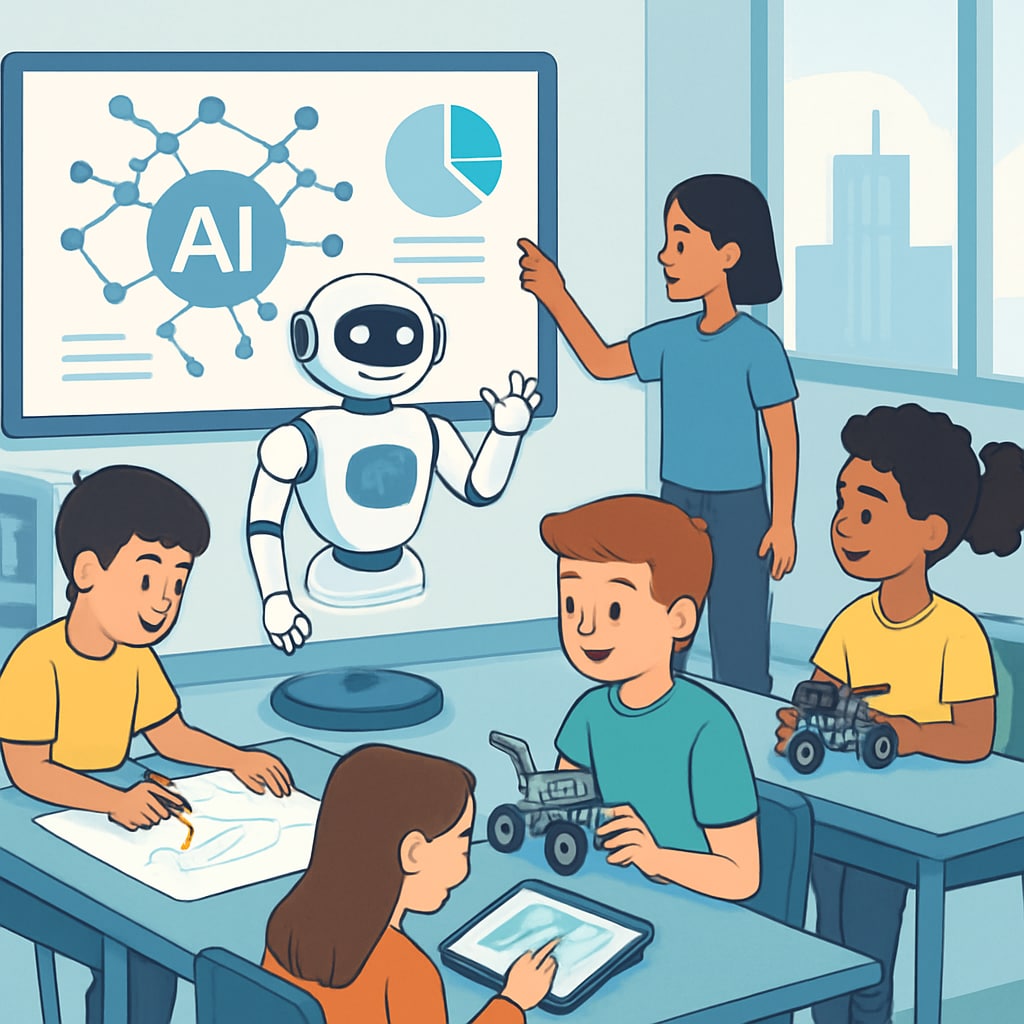The rapid advancement of artificial intelligence, competitive exams, talent selection is revolutionizing the education landscape, demanding a reevaluation of traditional assessment systems. While competitive exams have long been the cornerstone of K12 education, they increasingly fail to address the unique talents and potential of students in the AI-driven era. Reforming these systems is essential to ensure inclusivity, adaptability, and innovation in talent selection.
The Limitations of Traditional Competitive Exams
Traditional competitive exams largely focus on rote memorization and standardized testing. These methods often overlook critical skills such as creativity, problem-solving, collaboration, and adaptability—qualities highly valued in the AI era. Moreover, they tend to favor students who excel in specific academic areas, leaving behind those with diverse talents and learning styles.

For example, AI’s ability to automate routine tasks is shifting the demand toward human skills that cannot be replicated by machines. Competitive exams, however, remain anchored to outdated modes of evaluation. As a result, students are being trained for a past era instead of being prepared for the future. This mismatch calls for a paradigm shift in K12 education.
Why AI Demands a New Approach to Talent Selection
Artificial intelligence is not just a technological revolution; it is reshaping the very fabric of societal expectations and workforce dynamics. In the AI era, skills such as analytical reasoning, emotional intelligence, and adaptability are becoming indispensable. Competitive exams designed decades ago fail to identify these multidimensional talents effectively.
Instead of solely relying on test scores, a holistic approach to talent selection is needed. This could include:
- Project-based assessments that evaluate creativity and innovation.
- Collaborative tasks to measure teamwork and interpersonal skills.
- Dynamic simulations to test adaptability in real-world scenarios.
- AI tools that personalize learning assessments based on students’ unique strengths.
Innovative methods such as these not only align with the demands of the AI era but also foster inclusivity, ensuring that all students—regardless of their learning styles or strengths—have the opportunity to thrive.

Reimagining K12 Education: A Call to Action
To successfully adapt to the AI-driven world, education policymakers must prioritize the reform of competitive exams and assessment systems. This transformation requires collaboration among educators, technologists, and policymakers to create frameworks that are both inclusive and future-focused.
Several key steps can guide this process:
- Embrace technology: Leverage AI to design personalized learning experiences and assessments.
- Redefine success: Shift the focus from academic scores to skills such as creativity and adaptability.
- Promote inclusivity: Develop evaluation methods that recognize diverse talents and learning styles.
- Invest in teacher training: Equip educators with the tools and knowledge to implement new assessment systems effectively.
These changes will not only prepare students for the challenges of an AI-driven future but also ensure that no potential goes unnoticed.
For further reading on AI’s impact on education, explore Education and Technology on Wikipedia or Artificial Intelligence on Britannica.
Conclusion: Preparing for the AI Era
In conclusion, artificial intelligence, competitive exams, talent selection are reshaping K12 education, creating an urgent need for reform in assessment systems. By embracing innovative and inclusive methods, we can ensure that every student is equipped to thrive in the AI-driven world. The future of education lies in adaptability, creativity, and collaboration—values that must be cultivated through reimagined examination frameworks.
As the AI era progresses, K12 education must evolve to nurture the diverse potential of all learners and redefine how talent is discovered and developed. The time to act is now.


